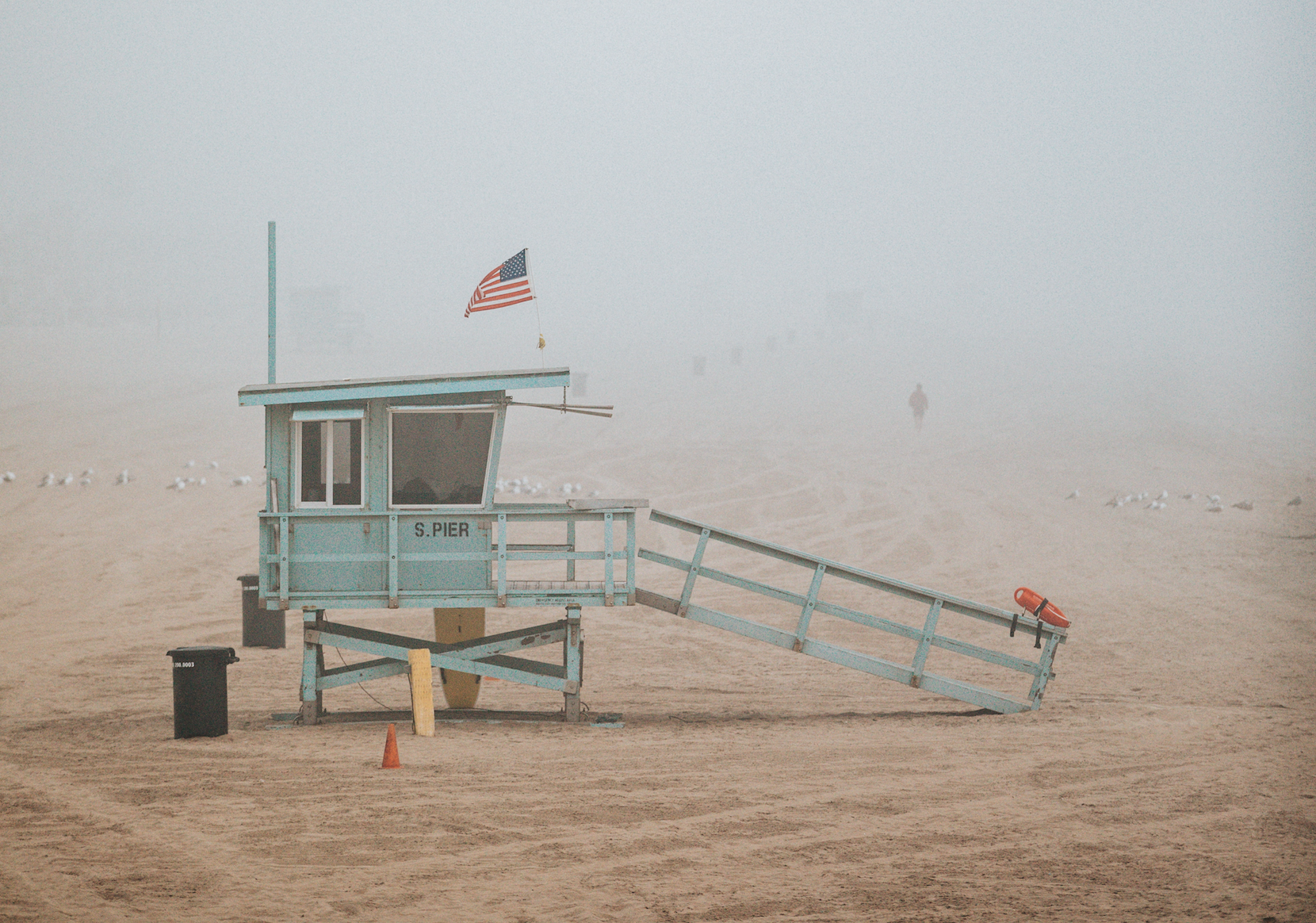When Jason Tuschen speaks, there’s a bright cheerfulness to his voice. The former Navy SEAL, who has 27 years of military and Special Operations experience under his tactical belt, laughs more than you’d expect. He describes his time with the SEALs as “fun.” He even jokes about the bad, fried food in Ramadi, Iraq.
This might seem strange, given the herculean image of SEALs as implacable warriors, with hard-set brows and a fierceness to their eyes, always ready for any mission, able to win any fight. But Tuschen is lighthearted when he talks about his Navy experiences, which were marked by some heavily impressive feats.
After finishing training in 1992, Tuschen reported to SEAL Team THREE, completing three platoon deployments as a petty officer. In 1997, he screened for and successfully completed selection at Naval Special Warfare Development Group. While there, he was soon promoted to Chief Petty Officer and later, Senior Chief Petty Officer, and was transferred to SEAL team SEVEN.
At SEAL Team SEVEN, Jason was assigned as a Task Unit Leading Chief Petty Officer and deployed in support of Operation Iraqi Freedom in 2005 and again in 2009. He’d continue to work his way up the ranks, assuming responsibilities as the SEAL Team ONE Command Master Chief and finally, ending his career as the Command Master Chief for Naval Special Warfare Group ONE. His personal decorations include two Bronze Stars, one for Valor, Meritorious Service Medals and more. Today, he lives in Southern California and is the co-founder/CEO of Randori Inc., an organization helping businesses—and those who lead them—reach their highest potential.

MELISSA: So, they say when you work with SEALs, you’re more than teammates; you become brothers. How true is that?
JASON: It’s totally true. Some of the guys I’ve known for my whole career are closer to me than family. Not my wife and kids, but they’re closer to me than anyone else. They’ve seen you at your best and they’ve seen you at your worst.
Does that bond begin right from day one of Basic Underwater Demolition/SEAL training (BUD/S)?
Absolutely. We start out SEAL training and hell week and it’s a hard, challenging selection course. Eighty percent don’t make it through. But what it is, really, is a collectively shared, miserable experience. And when people share misery together, you develop stronger relationships. You get this feeling like, “OK, you can throw anything at me because we are here together and there’s nothing as a team we can’t overcome.” It carries over to things like being gone during the holidays. It’s miserable to be gone from your family during that time of year but the fact that there are other teammates and brothers of yours sharing in the misery, it totally makes it bearable. Even fun. Which is crazy to say, but it can be really fun.
Fun?
Yes, fun. Even getting out and doing the job, in some ways, it was fun. It was exciting. You felt alive. It’s just a matter of, “How do you control your emotions?” You ask yourself: “How do you control fear? How do you control anger?” If you can keep those emotions in check and just focus, you can almost have fun doing it. We were brought up with the mentality of feeling miserable about misery, which makes it more miserable. But you can sit there and dwell on it and let the discomfort overwhelm you, or you can laugh it off and ignore it. Focus on what needs to get done—whether it’s running with a log on your head or going after an Al Qaeda cell in a horrible neighborhood in Iraq—and do it.
Do you feel like you’ve always been the type of person who has the ability to intensely focus on the task at hand or was that a skill you learned as a Navy SEAL?
I think it was there and just got developed further. The training to become a SEAL is hard but it is much harder after you get out of training and start doing the job that’s expected of you. I would describe SEAL training as a series of simple tasks. There might be a three-mile run but before you do the three-mile run, you and the class will lay in the ocean for however long it takes until you’re hypothermic and your hip flexors are locked up. Then you roll in the sand until you’re covered head to toe, so every step you take, sand is grating against your skin. You’re matched with five other people about your height and you all have to run the three miles together, with a boat on your head. If you work as a team, it hurts. But if you don’t work as a team, the wheels will come off and you’ll implode. Still, it’s a simple task—a three-mile run—just with distractions. A vast majority of people can’t get past the discomfort.
But you could?
Well, if I look at myself, growing up, I’ve always had the ability and discipline to ignore the discomfort. I grew up as a competitive swimmer. It’s a wonderful sport, one of the most honest sports there is because only you know if you’re giving it 100 percent. As a SEAL, you need to be tuned in with your body and environment and teammates to know when you have to give 100 percent and when giving 90 percent is a smarter decision. It’s impossible to go all out all the time. We are certainly a demographic where there’s not much middle ground. It’s usually 90 to 100 percent or zero percent. SEALs tend not to sandbag things.

How would you characterize—if it’s even possible—the typical Navy SEAL?
About 50 or so percent of SEALs have at least a bachelor’s degree. It’s a very educated force. SEALs could be anything, it’s really wild they choose to be SEALs. I sat for three to four years selecting guys for training, and it was incredible to see people coming in from all walks of life. I was a chef at Benihana in Chicago before I joined the Navy. If it wasn’t for the SEAL teams, I would still be doing that.
Did you get to make meals for your teammates when you were a SEAL?
I would definitely bring out some of the Benihana moves but we didn’t have a way to really cook food, so it was brought in to us. During one of my deployments, our base was right on the edge of a pretty gnarly area in Ramadi and every day we’d get containers filled with fried something or other. It was horrible. We even had a Christmas dinner, which sucked.

What is one thing people don’t realize about the realities of Navy SEAL life? I’d imagine what we see on TV and in movies is a glamorized and idealized version of the truth. What is it really like?
Navy SEALS are extremely confident but also extremely humble. There are always a handful of SEALs where ego gets in the way but they’re usually bad teammates. Great SEAL teammates are amazingly humble and humility starts at training. No matter how good you are, you will find there is some weakness that will be exposed throughout the course of training. And a lot of times you can’t overcome it purely on your own; you need your teammates to help you to do so, and that breeds a humble mindset. But training instills in you the confidence to know you can overcome anything with mental toughness and teammates supporting you.
Any other misconceptions you want to clear up about SEALs?
The teams are certainly as far from order-following people as I’ve ever been around. One of my very first impressions of SEAL teams was when I graduated training and was sitting at a team meeting and realized it’s OK to ask a leader, “Why?” Every SEAL wants to understand the reasoning behind a mission, why it’s relevant and how it fits into the larger strategy. And SEALs expect the leader to answer the question. As a leader, if I couldn’t answer that question, I needed to rethink what I was asking people to do.
But there was some level of discipline, right?
It’s very disciplined but not in terms of starched uniforms, short hair and marching together. It’s more about self-discipline and the collective discipline within the team. You will never cheat on training. You will always do things the right way. It’s very disciplined about how you pack your chute, skydive, use explosives. But when it comes to planning a mission, it’s very collaborative and people—from the most junior person to the most senior person—are allowed to speak up. Their opinions are valued, which is how it should be with any well-run business. Companies don’t go out of their way to hire unintelligent employees. They’d be foolish not to tap into that knowledge. Why not empower people and hear what they have to say? Everyone should have a voice.

When you’re with your family every day now, after so many years serving overseas, does spending time together take on new meaning for you?
One of the things I’m most proud of is that I kept my family intact over that timeframe when I was overseas. My wife and I have been together for over a quarter of a century. My daughter is now 15. My son is almost 19. I have a great relationship with my kids. It took a lot of discipline to find balance between work and home.
Do you have any special relationship to Southern California now that it’s your home base?
I love California. I grew up in Wisconsin, so when January and February roll around, I cannot express how much I love it here. My family loves to surf. The day I checked into SEAL training in San Diego, I was like, “OK, cool, I’m surfing. This is awesome.” We were in the water a lot for training and one of my BUD/S instructors was big wave pioneer Buzzy Trent’s son Ivan. We’d be doing a swim out in the ocean and he’d be giving us instruction from his longboard. I thought, “Oh, this is rad.”

If you could relay a message to SEALs working overseas, what would it be?
Get a haircut and check the watch bill. No, you don’t even need to say anything to them. They get it. They know the standard they’re expected to uphold. They do things the right way, not the easy way.
And if you could relay a message to the readers of this interview, what would that be?
The big one for me is really dispelling the myth that we are robotic, order takers. I’ve never seen that during my time as a SEAL. It just doesn’t work in the SEAL community, which is made up of really smart people. They’re going to call you out if you’re not genuine or if you’re making a dumb decision. As a leader, you should always recognize sometimes you can be wrong.
That sounds like a good philosophy for business and life.
Definitely. It’s so important to own it when you’re wrong, which is the basis for [former Navy SEAL] Jocko Willink’s book, Extreme Ownership. Jocko was the first dude I ever met in BUD/S. He was in the class in front of me. We had to stand watch together one night and he’s not a whole lot different now from the way he was then. Extreme ownership is the way it goes for him and for all of us. Leaders who pass blame onto someone else don’t do well in our community. You’re expected to own your mistakes and come clean with them. You’re going to screw up. Own it, learn from it and move on.



Jason
Thank you sir for all you be done. Current team members thank you for what you do. I was a corpsman with the marines and understand what being away from home really means. Be safe keep your powder dry and watch your six. Take care all and thank all vetrans for your service.
Thank You for your Dedication 🙏 and service to be willing to help others that you may never know. O Salute you, In the name of Loyalty, Love and Patriotism.Sincerely Olivia